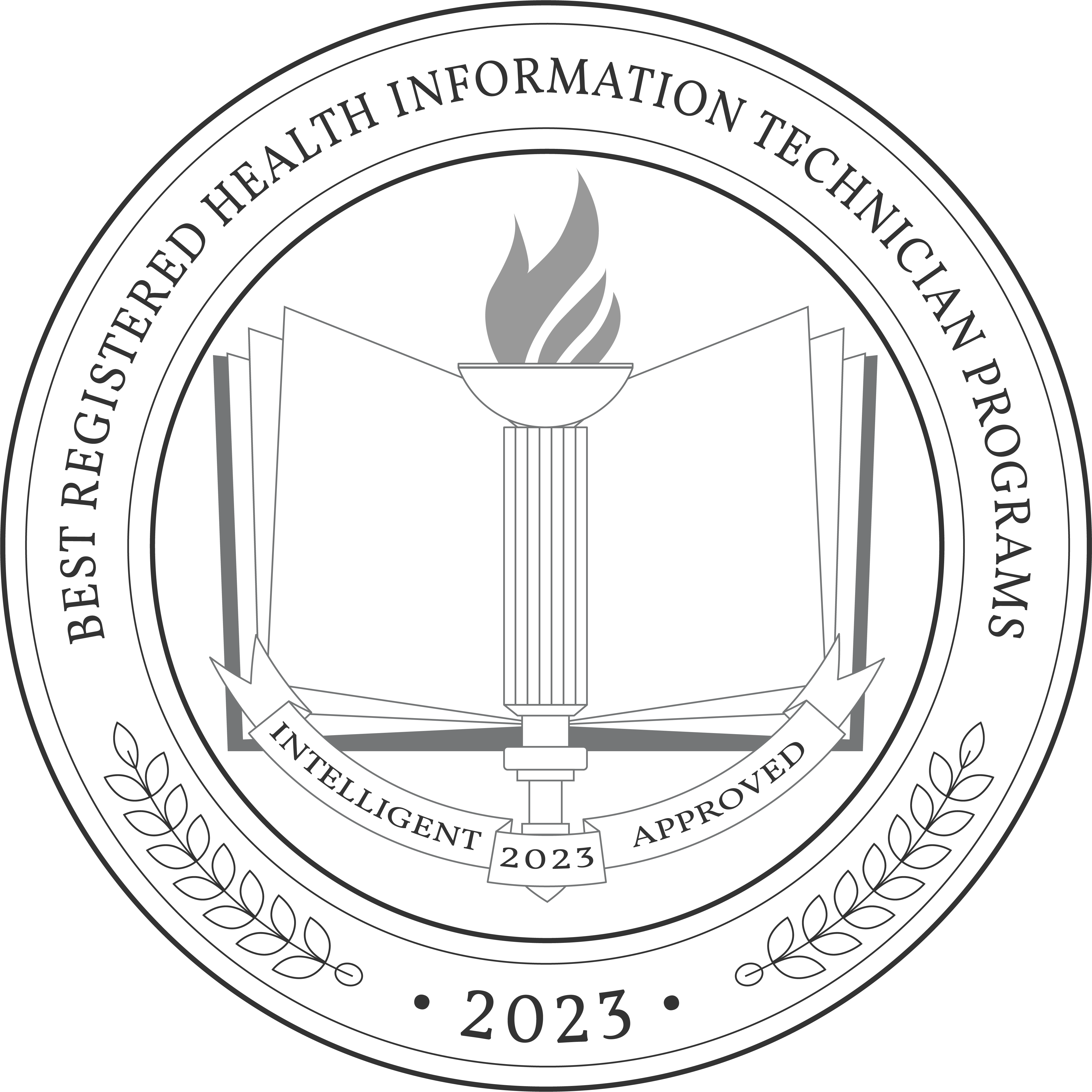Why This Matters
-
THE U.S. NEEDS 29,000 MORE HEALTH INFORMATION TECHNICIANS
As the use of electronic health records (EHRs) becomes widespread and the medical needs of the aging population increases, the demand for health information technicians is projected to grow 8% faster than the average for all occupations through 2029.
-
33% of HEALTH INFORMATION TECHNICIANS WORK IN HOSPITALS
Other common work settings include physician’s offices, nursing homes, mental health facilities, public health agencies, and pharmaceutical companies.
-
HEALTH INFORMATION MANAGERS EARN $100K PER YEAR
A degree in health information technology can put you on the path toward becoming a health information manager and earning $100,980 annually.
Our Research
Students can obtain an education in health information technology at multiple levels. An associate degree or postsecondary certificate is the minimum level of education required to become a registered health information technician, although bachelor’s programs exist as well. The majority of programs we reviewed for this list award Associate of Science or Associate of Applied Science degrees.
Our list includes schools with regional and national accreditation. Most programs are accredited through the Commission on Accreditation for Health Informatics and Information Management (CAHIIM), which sets standards of quality education in health informatics and health information management and performs annual program monitoring to continually improve the quality of education. We reviewed programs that are offered online, in person, and in blended formats.
We evaluated each program on the basis of flexibility, faculty, course strength, cost, and reputation. Then we calculated the Intelligent Score for each program on a scale from 0 to 100. For a more extensive explanation, check out Our Ranking Methodology.
- 73 hours to write this article
- 153 universities and colleges we assessed
- 324 education programs we compared
The Top 50 Registered Health Information Technician

Discover More Options
What You Should Know About This Degree
Because health information technicians play such an important role in the healthcare system, certification is typically required to enter the field. Near the end of an accredited health information technology program, you will need to pass a certification exam. The most popular health information technology credential is the Registered Health Information Technician credential (RHIT), which is administered by the American Health Information Management Association (AHIMA). Other common health information technology credentials include the Registered Health Information Administrator (RHIA) and Certified Coding Specialist (CCS) certificates.
The type of certification you pursue will be based on your current level of education and professional goals. RHITs typically work directly with healthcare data and tend to specialize in data capture, including medical coding data for reimbursement and research purposes. To sit for the RHIT exam, candidates must complete a Health Information Management (HIM) program at an associate degree level, accredited by the CAHIIM. RHIA holders usually focus on HIPAA privacy and security, data governance, and data analytics.
RHIA applicants must complete the baccalaureate-level academic requirements of a HIM program accredited by the CAHIIM to be eligible for the RHIA credential. Those with a CCS classify medical data from patient records by assigning numeric codes for each diagnosis and procedure. CCS candidates are not required to hold a degree; however, to be eligible for the CCS exam, they typically must complete courses in subjects such as anatomy, physiology, medical terminology, pharmacology, pathophysiology, reimbursement methodology, and ICD diagnostic coding or have two years of related coding experience.
What’s Next?
Here are some questions to ask when researching health information technology programs:
- Am I eligible for this program? Applicants to health information technology programs might increase their chances of admission by taking high school courses in biology, computer science, health, and math. A high school diploma or equivalent, plus college-level placement in reading, writing, and math, is typically enough to qualify a student for a health information technology program.
- How long does it take to complete this degree? The amount of time it takes to earn a health information technology degree depends on several factors. It typically takes two years for a full-time student to earn an associate degree in health information technology. Pursuing a bachelor’s degree requires four academic years. Certificate programs are generally of shorter duration.
As you research programs, keep track of application deadlines and materials you must submit for each program. You can usually find this information on the school’s website or by contacting their admissions department.
Another important consideration is how you’ll pay for your education. Submit financial aid applications on time, and check out other kinds of potential funding, such as grants, scholarships, and tuition reimbursement from your employer.